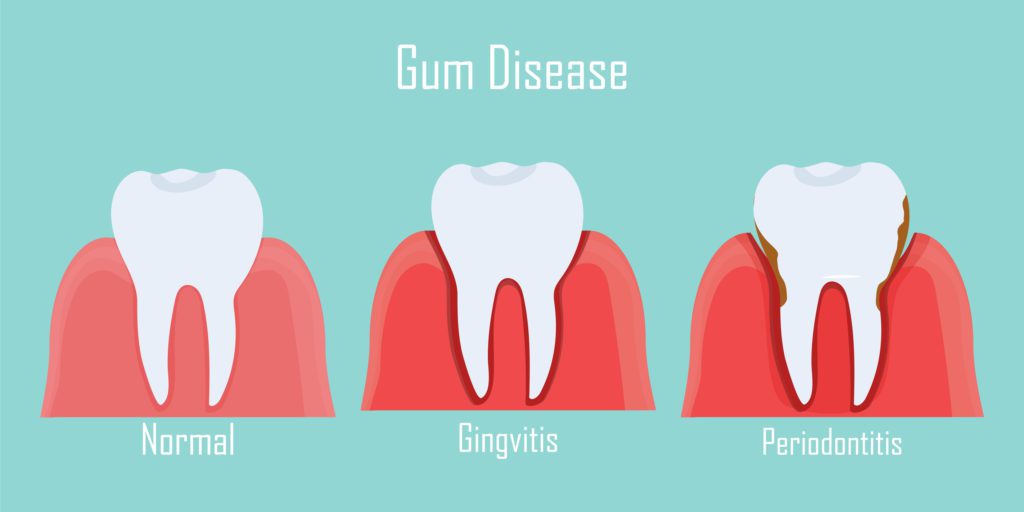Did you know that the health of your gums is important for the health of your teeth?
Healthy gums are there to nourish and support your teeth. Also known as “gingiva,” the gums serve as the connective tissue between the jaw bone and your teeth. If the gums are infected, receding, or otherwise in deteriorating health, it will eventually impact your entire smile. So, how do you keep your gums healthy and stable throughout your life?

Routine Dental Care: disease prevention
Gum disease is typically able to go unnoticed for some time because the early signs are easy to overlook. That’s where routine dental office visits can make a big difference- routine screening for gum disease means it can be identified and treated in the early stage. If it goes untreated for some time, you could experience permanent damage to your gums and even tooth loss. Visiting with us twice a year allows Dr. Welinsky and our team to help you manage your oral health with personalized recommendations. If you are prone to gum disease, we will work with you to keep it managed between visits.
It also helps to know the common signs of gum disease or gingivitis:
- Gums that bleed when brushing
- Redness or swelling along the gum line
- Gums that are irritated or discomfort when brushing along the gum line
- Persistent bad breath
Bleeding gums is the most common sign of developing gum disease. If you notice blood in the sink after brushing or any of the other symptoms mentioned above, schedule a visit. The faster gum disease is treated, the less likely it will be an ongoing problem.
How Is Gum Disease Treated?
The treatment we will recommend or provide for gum disease is dependent upon the stage of severity of your disease. For early gum disease or gingivitis, many patients respond quickly to a more thorough dental cleaning procedure called scaling and root planing. This process deep cleans the gums along the tooth roots and removes hardened plaque. Removing the plaque helps the gums to rejuvenate and reattach to the teeth, closing any pockets. Following up with anti-bacterial rinses at home will get your oral health back on track.
For more advanced gum disease, we may coordinate care with a local oral surgeon. If your gums have already pulled away from the teeth and deep pockets are noticeable, more intensive treatment may be needed to restore healthy gums. For more information on how our office treats gum disease, visit Periodontal Therapy.
It is important that you treat the gums- for most patients, it is possible to treat periodontitis and, over time, get the gums back to a healthy condition. The faster treatment is sought, the less likely tooth loss is the outcome.
